Podcasts and Language Learning, a Happy Marriage / Podcasts y aprendizaje de idiomas, un matrimonio feliz (ENG/ESP)
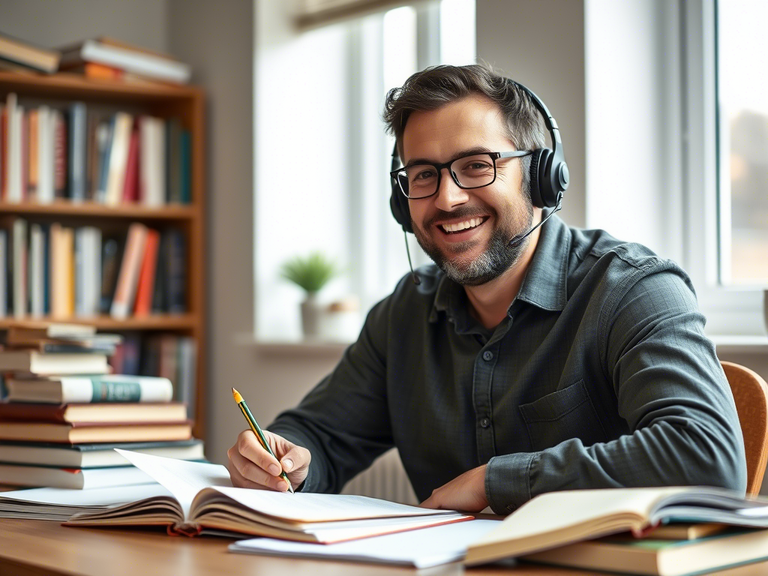
Image generated with Qwen.
Have you ever felt frustrated because your pronunciation isn’t improving in the language you decided to learn? Well, before getting frustrated, you should try relaxing with some podcasts... literally!
Not too long ago, when we started studying a language, we only had two sources to familiarize ourselves with the new phonetics: the teacher and the audio materials from the method we were using.
Each of these sources came with its own difficulties: the teacher was (most of the time) not a native speaker of the language he or she was teaching, and the method’s audio materials were always insufficient. All of that changed with the arrival of podcasts.
Nothing replaces immersion in the target language when studying, and that’s why podcasts are undoubtedly the best option when you can’t travel. Combined with reading, they can provide all or nearly all the contextual depth, and especially the cultural depth that beginners lack when studying a foreign language.
The biggest advantage of podcasts is that they’re free (the vast majority of them), literally offering an ever-growing library of useful material at little to no cost.
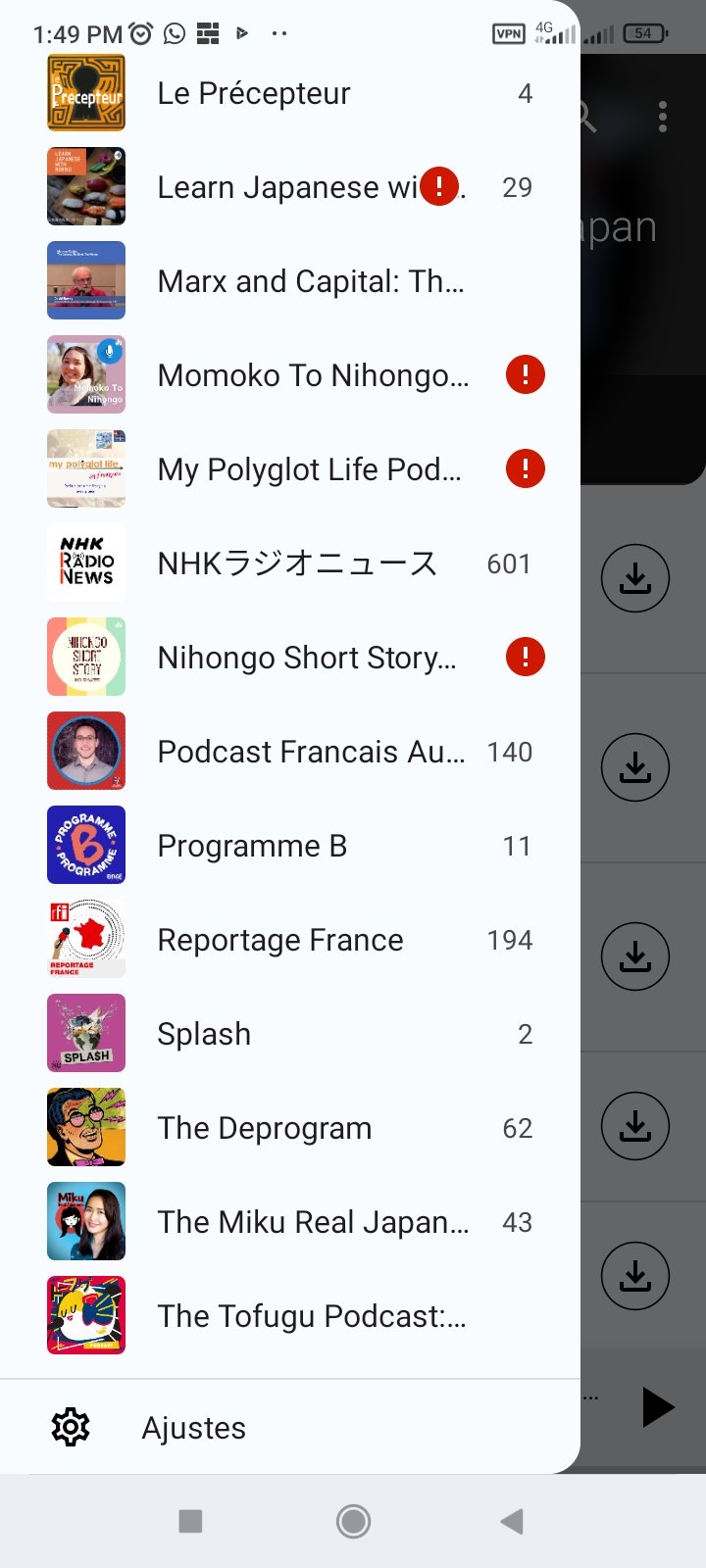 | 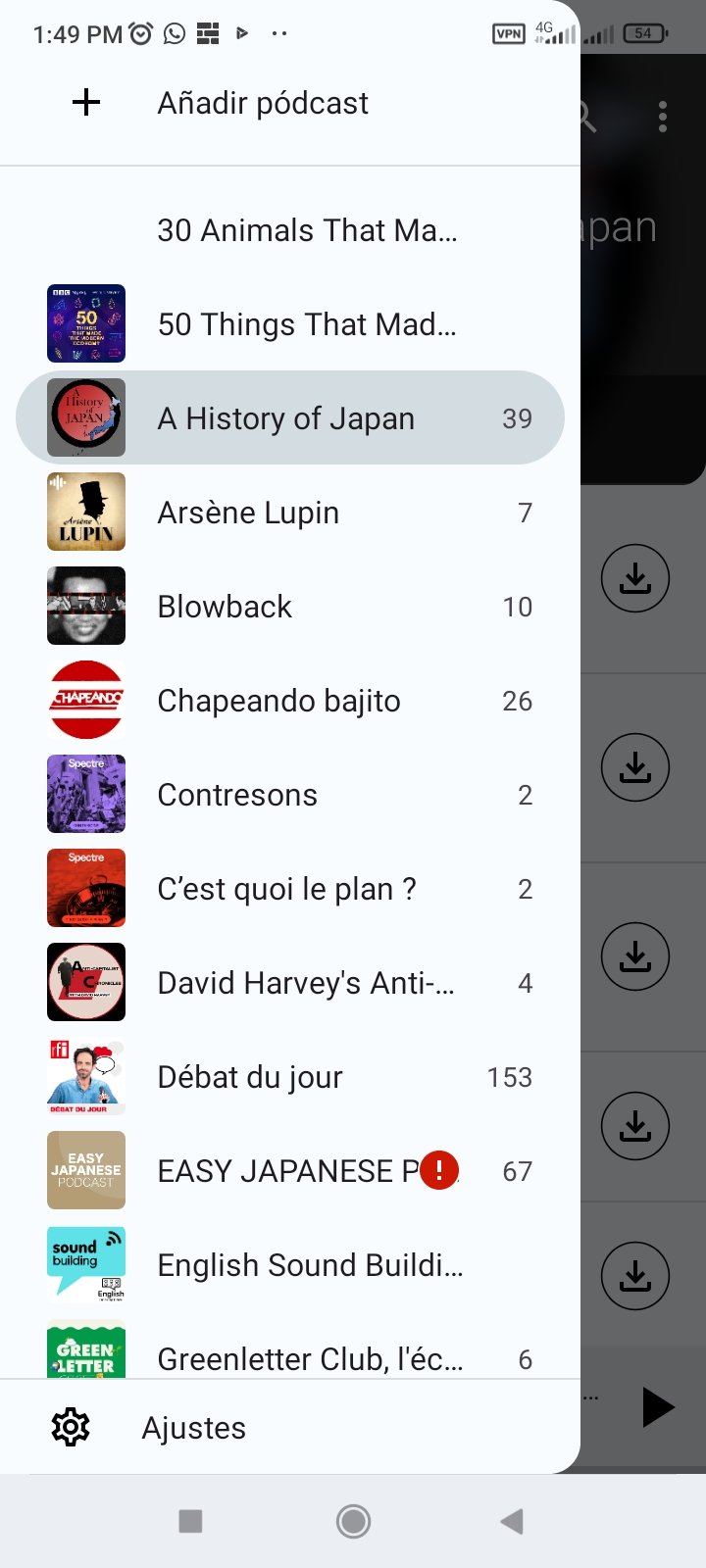 |
|---|
My podcasts. Screenshots from my phone.
There’s also the matter of convenience: we listen whenever and wherever we can and want. This way, even dead time is put to good use, like when we’re on the bus or walking to work.
There are podcasts on every imaginable topic, it’s a sure bet that if you search, you’ll find one that catches your interest. By choosing topics based on our needs and inclinations, we get an added benefit: the content’s contribution to our development on the personal, professional, or any other area of our lives.
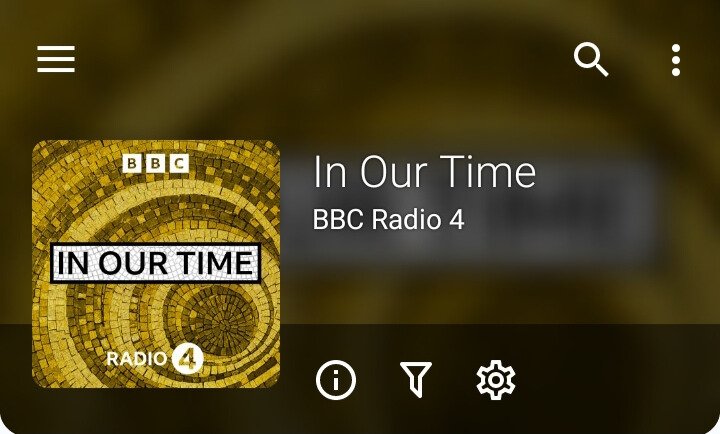 |  |
|---|
Some of my favorites. Screenshots from my phone, edited with Canva.
Another great advantage I see is that they provide an endless bank of real-world pronunciation examples in context... and not the slow, condescending articulation of a teacher.
One of the techniques that gave me the best results when studying French was doing three listenings, even if I understood very little at first:
1️⃣ The first listen is just to get familiar with the sounds. ✅
2️⃣ The second listen is done while reading the transcript. ✅
- 💬 Then comes the work with the dictionary to understand new words. ✅
3️⃣ Finally, the third listening aims to understand at least 80% of the content, and since this is an exercise we’ll repeat, that percentage is enough to progress. ✅
It’s a long and intense process, but it delivers excellent results. In my case, it was the best way to expand my vocabulary steadily around the topics of my personal interest.
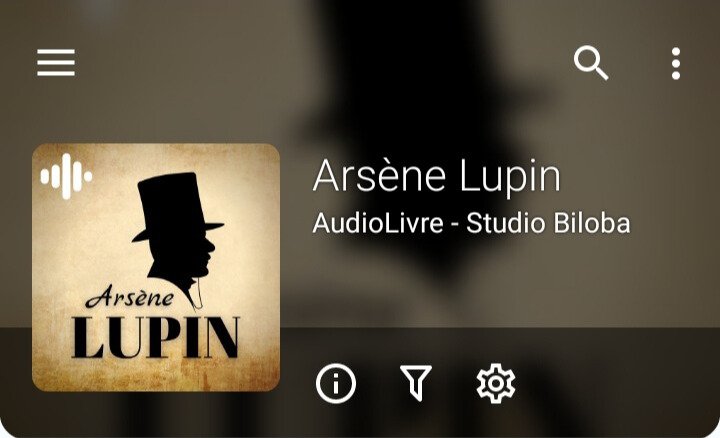 | 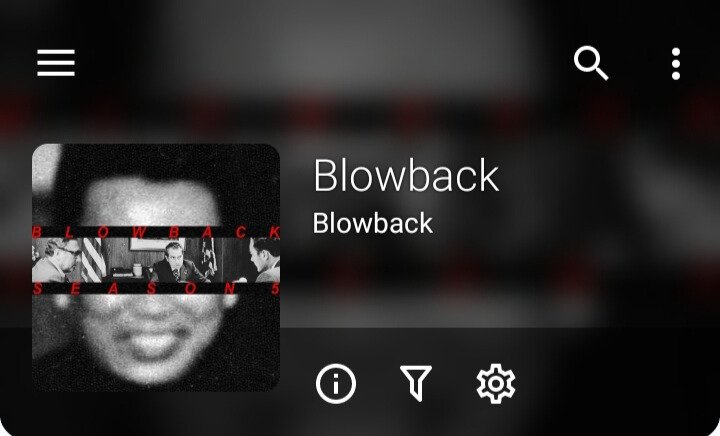 |
|---|
Some of my favorites. Screenshots from my phone, edited with Canva.
You can also try mimicking the pronunciation and intonation of what you hear. It might seem simple or silly, but it’s an effective way to polish your pronunciation independently, without traveling or teachers.
The difficulty always lies in finding a podcast that fits our academic and linguistic needs and also provides a written transcript. Luckily, Google comes to the rescue. If we search for "best French podcasts for A1-A2 learners," we’re sure to find something useful. It’s a matter of asking patiently and in great detail, then filtering the results.
The second issue with podcasts is the target language. English is the king of the mountain, while French, Spanish, Russian, Hindi, Mandarin Chinese, and other widely spoken languages aren’t a problem. But if you want to learn Bantu, things can get trickier as availability is limited outside the most common languages on the internet.
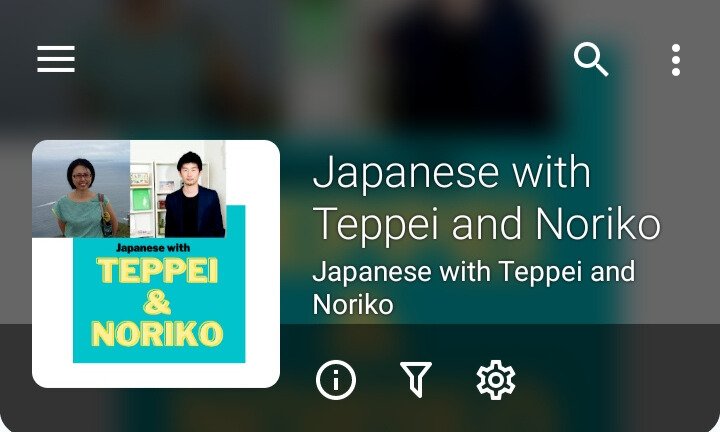 | 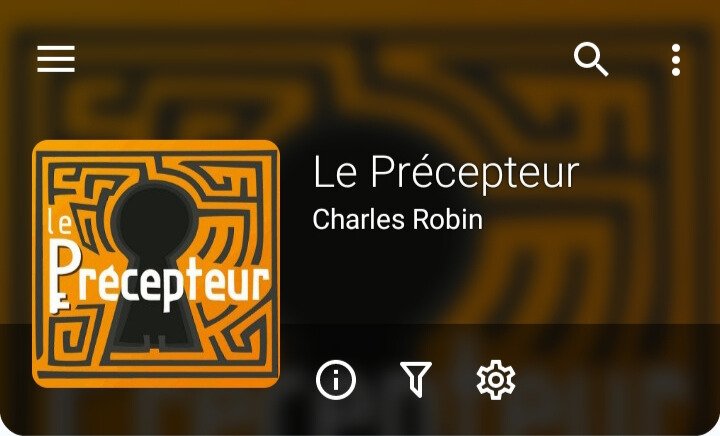 |
|---|
Some of my favorites. Screenshots from my phone, edited with Canva.
A small child learns through complete immersion in their linguistic context, absorbing the language and everything else as one indivisible block of content and context. We, who are only pursuing the language, can mimic this process with excellent results. By dedicating just 15 minutes a day to listening, our brains "get used to" the new sounds and soon begin to identify subtleties with increasing precision.
In the end, the best part is that there will always be a new great podcast to discover, perhaps with better production, a more current topic, or a level that matches our present day abilities. It’s also worth noting that more and more podcasts are specifically dedicated to teaching languages, a curious and highly useful trend.
For all these reasons, I believe the podcasting industry is a gift for language learners, offering complete freedom to choose the pace, content, schedule, and intensity of our study sessions.
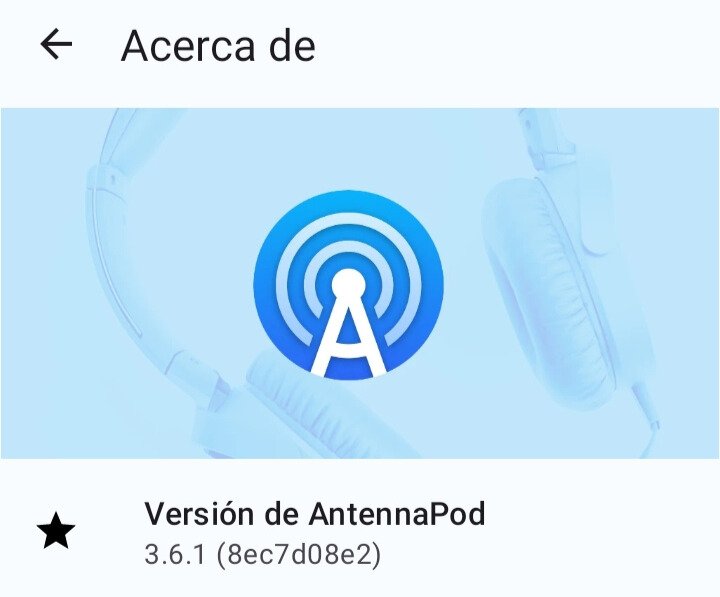
Some of my favorites. Screenshot from my phone, edited with Canva.
As for apps to use, I don’t recommend any specific one. I use AntennaPod for its simplicity and convenience, but the choice depends on each person. I prefer not to recommend apps because there are many, and in the end, they’re just a means to an end. Exploring different options was what helped me find the one best suited to my needs.
SPANISH VERSION

Imagen generada con Qwen.
¿Alguna vez te has sentido frustrado porque tu pronunciación no mejora en el idioma que decidiste aprender? Pues antes de frustrante deberías intentar relajarte con algunos podcasts... ¡literalmente!
Hasta no hace mucho cuando comenzábamos el estudio de un idioma, teníamos sólo dos fuentes de familiarización con la nueva fonética: el profesor y los audios del método que usáramos.
Cada una de estas fuentes viene con sus propias dificultades: el profesor no era (la mayoría de las veces) nativo en la lengua que enseñaba, y los audios del método eran siempre insuficientes. Todo eso quedó atrás con la llegada de los podcasts.
Nada sustituye la inmersión en la lengua objetivo a la hora de estudiar un idioma y por ello los podcasts son sin dudas la mejor opción cuando no se puede viajar. Combinados con la lectura son capaces de proveer toda o casi toda la profundidad contextual y sobre todo cultural que le falta a los principiantes en el estudio de alguna legua extranjera.
La más grande ventaja de los podcasts es que son gratis (en su inmensa mayoría), literalmente ofrecen una biblioteca siempre creciente de material útil por un costo nulo o marginal.
 |  |
|---|
Mis podcasts. Capturas de pantalla de mi celular.
También está la cuestión de la conveniencia: escuchamos cuándo y dónde podamos y queramos. Así se aprovechan incluso los tiempos muertos, como cuando vamos en autobús o caminamos al trabajo.
Podcasts hay de todos los temas imaginables, es cosa segura que si buscas encontrarás alguno que te llame la atención. Al escoger el tema según nuestras necesidades e inclinaciones obtenemos un beneficio adicional: lo que el contenido aporte a nuestras vidas en lo personal, profesional u otro campo de nuestra elección.
 |  |
|---|
Algunos de mis preferidos. Capturas de pantalla de mi celular, recortadas con Canva.
Otra gran virtud que les veo es que proveen un banco inagotable de ejemplos de la pronunciación real en contexto, y no la articulación lenta y condescendiente del profesor.
Una de las técnicas que me dió mejores resultados al estudiar francés fue hacer tres escuchas aunque entendiera bien poco al inicio:
1️⃣La primera es sólo para ganar en familiaridad con los sonidos.✅
2️⃣La segunda se realiza leyendo la transcripción al mismo tiempo.✅
- 💬Luego viene el trabajo con el diccionario para entender las palabras nuevas.✅
3️⃣Al final, la tercera escucha busca comprender al menos el ochenta por ciento del contenido, y como se trata de un ejercicio que repetiremos, ese porcentaje es suficiente para avanzar.✅
Es un trabajo largo e intenso, pero que brinda excelentes resultados. En mi caso fue la mejor forma de expandir el vocabulario de forma sostenida y en temas de personal interés.
 |  |
|---|
Algunos de mis preferidos. Capturas de pantalla de mi celular, recortadas con Canva.
También puedes intentar copiar la pronunciación y entonación de lo que escuchas, puede parecer sencillo o tonto, pero es una vía efectiva para pulir la pronunciación de forma independiente, sin viajar y sin profesores.
La dificultad radica siempre en hallar un podcast que se ajuste a nuestras necesidades académicas y lingüísticas, y que además ofrezca la transcripción escrita. Pero por suerte, el buscador de Google viene al rescate. Si buscamos "mejores podcast en francés para estudiantes de nivel A1-A2" es seguro que hallaremos alguno que nos resulte útil. Es cosa de preguntarle con paciencia y mucho detalle para luego filtrar los resultados.
El segundo problema de los podcasts es el idioma objetivo. El inglés es el gran rey, mientras que francés, español, ruso, hindi, chino mandarín, y otros de gran extensión y popularidad no presentan problemas. Pero si quieres aprender bantú la cosa puede complicarse, ya que la disponibilidad es poca fuera de los idiomas más extendidos en la internet.
 |  |
|---|
Algunos de mis preferidos. Capturas de pantalla de mi celular, recortadas con Canva.
Un niño pequeño aprende a través de la inmersión completa en su contexto lingüístico, tomando el idioma y todo lo demás como un gran bloque indivisible de contenido y contexto. Nosotros, que sólo perseguimos el idioma, podemos imitar el proceso con excelentes resultados, pues al dedicar quince minutos diarios de escucha nuestro cerebro se "acostumbra" a los nuevos sonidos y pronto comienza a identificar las sutilidades con precisión creciente.
Al final, lo mejor de todo es que siempre habrá un nuevo podcast genial que descubrir, quizás con mejor producción o un tema más actual, o un nivel acorde a nuestras capacidades reales. Es necesario decir además que cada día son más los dedicados específicamente a enseñar idiomas, una tendencia curiosa y de gran utilidad.
Por todo lo anterior creo que la industria del podcasting es un regalo para el estudiante de idiomas, pues ofrece una entera libertad para escoger el ritmo, el contenido, los horarios y la intensidad de nuestras sesiones de estudio.

Algunos de mis preferidos. Captura de pantalla de mi celular, recortada con Canva.
En cuánto a las apps a utilizar no recomiendo ninguna en específico, utilizo AntennaPod por simple y conveniente, pero la elección dependerá de cada cual. Prefiero no recomendar aplicaciones porque hay muchas y al final son sólo un medio para un fin, explorar entre variadas opciones fue lo que me hizo hallar la más adaptada a mis necesidades.
¡Excelentes tips que nos enseñas para iniciar en este camino del aprendizaje!
¡Gracias!
Gracias a ti por llegarte a mi post a leer. Bueno esto es lo que me habría gustado que me explicaran cuando comencé a interesarme por los idiomas, algo así me habría ahorrado mucho tiempo. A veces uno tiene las mejores opciones justo debajo de la nariz y aún así no ve nada, por eso este post.
¡Es una muestra de que el mundo necesita mas personas como tú!
Muy buena recomendación que voy a seguir. Estaba viendo algunos canales de YouTube para la pronunciación, y en Spotify practico con canciones que tienen su transcripción. Pero esto que sugieres me parece muy conveniente.
Gracias.
En mi experiencia las canciones no son una buena idea, por dos motivos esenciales. Por una parte suelen tener un vocabulario limitado y poco útil fuera de ciertos ámbitos, y al menos en mi concecpción, la idea de aprender un idioma es ser tan todoterreno como se pueda en ese idioma. Por otra parte el lenguaje poético de las canciones puede presentar serias dificultades a la comprensión e incluso introducir ruidos de corte semántico, fonético y gramatical que llegan a ser verdaderos obstáculos si se internalizan. Evidentemente si la música es lo tuyo pues avanza en ese sentido, es importante proyectar tus intereses sobre le nuevo idioma, pero para fonética, vocabulario, gramática contextualizada y demás, los podcasts son bastante más completos en tanto herramientas.
Tienes razón. Es una buena observación esta que me acabas de hacer.
Espero poder llegar a ser un día todoterreno jajaja como dices, en inglés. Quizás no me lo he tomado tan en serio como debería.
Nice one. Much love
Thank you, language learning is something I am really passionate about, it is one of my long term interests.
Don't give up learning. I can relate.